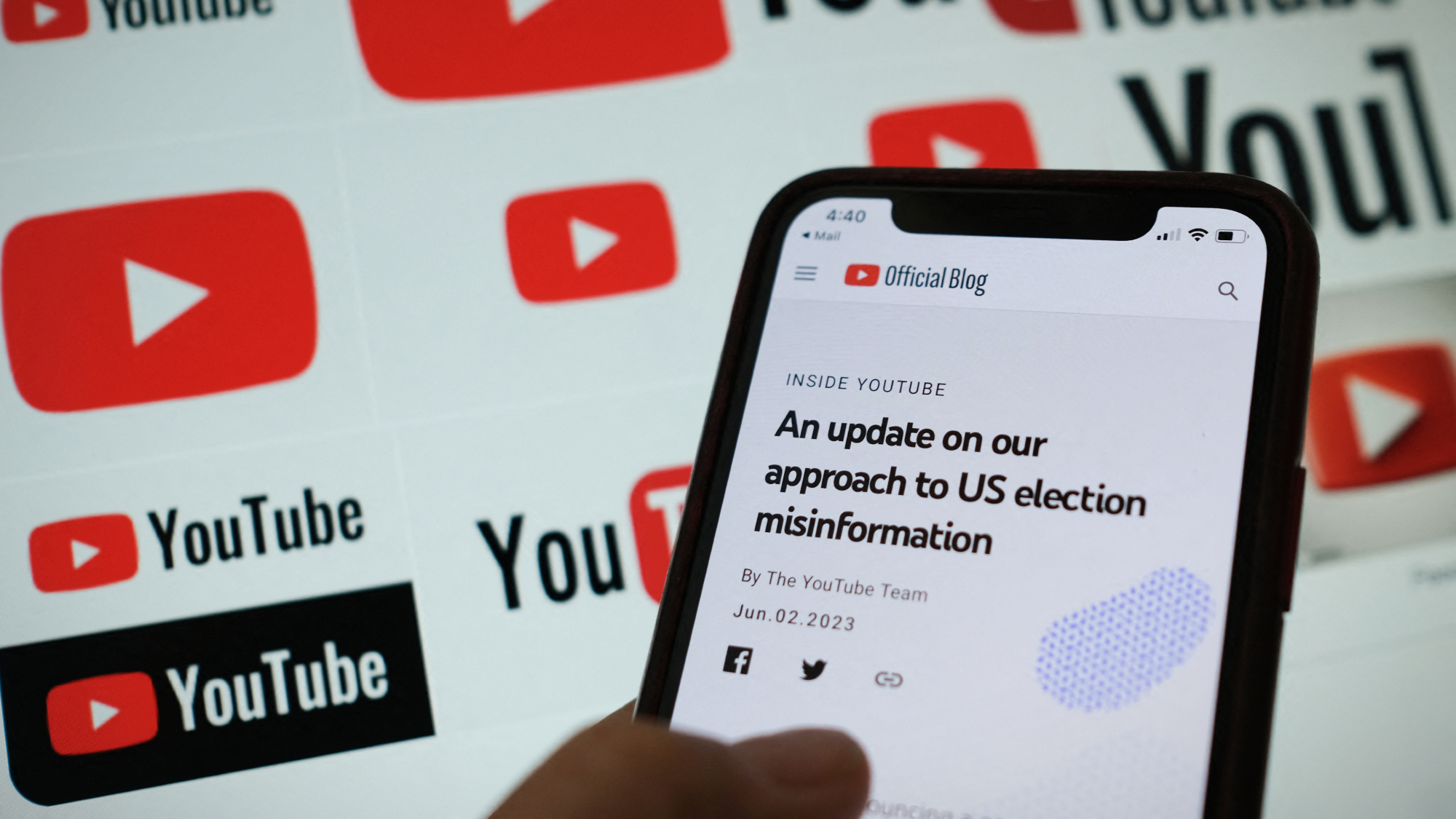Google political ad ban: the restrictions coming in ahead of the 2019 general election
Search giant follows Twitter’s lead by drastically reducing political power online

A free daily email with the biggest news stories of the day – and the best features from TheWeek.com
You are now subscribed
Your newsletter sign-up was successful
Google has become the latest tech giant to announce major restrictions on political advertising ahead of next month’s general election.
The company announced on Wednesday that political adverts would no longer be targeting voters “on any characteristics except for age, gender and broad geographical area”, The Daily Telegraph reports.
It means that political advertisers in Britain will be barred from targeting voters “based on their interests and detailed life circumstances”, the newspaper adds. When the policy changes reach the US, they will prevent American parties from uploading voter data “bought from other sources”.
The Week
Escape your echo chamber. Get the facts behind the news, plus analysis from multiple perspectives.

Sign up for The Week's Free Newsletters
From our morning news briefing to a weekly Good News Newsletter, get the best of The Week delivered directly to your inbox.
From our morning news briefing to a weekly Good News Newsletter, get the best of The Week delivered directly to your inbox.
Google is fast-tracking these amendments to its political advertising policies ahead of the UK general election on 12 December.
“It will take some time to implement these changes, and we will begin enforcing the new approach in the UK within a week,” said Google product management director Scott Spencer. The company plans to expand the new policy to countries in the European Union “by the end of the year”, before launching globally on 6 January.
The moves come after some of the industry’s key players announced their own crackdowns on political adverts.
How do political advertisers use Google?
A free daily email with the biggest news stories of the day – and the best features from TheWeek.com
As reported by the Financial Times, advertisers could target their adverts through searches and via Google’s video platform YouTube “based on email lists that they had collected”. Advertisers could also use data on the “broad interests” of Google users, such as fans of a particular sport.
In the US, Google allowed advertisers to target ads based on a person’s political leaning, the FT notes. For instance, if a person visits a right-wing news site, there is a greater chance they will see political ads from a political party with similar views.
This service, however, is not available in the UK owing to local laws.
But countries outside of the US were allowed to upload “lists of contact details” – such as a database of party members – to Google, which would then be matched with the search firm’s users so that they could be targeted directly, the BBC says.
This will now be banned under the new advertising policy, the broadcaster says. Political campaigns can, like other advertisers, continue to place ads alongside “specific types of content” - such as videos and news articles.
“Regardless of the cost or impact to spending on our platforms, we believe these changes will help promote confidence in digital political advertising and trust in electoral processes worldwide”, said Spencer.
How are its rivals cracking down on political ads?
In October, Twitter chief Jack Dorsey announced that the social media platform would be banning political ads altogether ahead of the general election.
“We believe political message reach should be earned, not bought,” Dorsey said.
The blanket ban prevents candidates and campaigns from posting political tweets, though adverts encouraging users to vote will still be permitted once the policy change comes into effect tomorrow, The Verge says.
Although Facebook initially chose not to follow Twitter’s lead, instead opting to let political ads run on its website with little intervention, The Independent claims that the company may have since changed its tune.
According to US broadcaster NBC News, Facebook chief Mark Zuckerberg is “open to ideas about how to curb the spread of false ads”, which may include limiting the ability of political parties to target “narrow groups” of the site’s users.
Either way, Facebook intends to launch a dedicated operations centre in the UK ahead of the election to prevent the spread of disinformation.
-
 House votes to end Trump’s Canada tariffs
House votes to end Trump’s Canada tariffsSpeed Read Six Republicans joined with Democrats to repeal the president’s tariffs
-
 Bondi, Democrats clash over Epstein in hearing
Bondi, Democrats clash over Epstein in hearingSpeed Read Attorney General Pam Bondi ignored survivors of convicted sex offender Jeffrey Epstein and demanded that Democrats apologize to Trump
-
 Are Big Tech firms the new tobacco companies?
Are Big Tech firms the new tobacco companies?Today’s Big Question Trial will determine if Meta, YouTube designed addictive products
-
 How corrupt is the UK?
How corrupt is the UK?The Explainer Decline in standards ‘risks becoming a defining feature of our political culture’ as Britain falls to lowest ever score on global index
-
 Big-time money squabbles: the conflict over California’s proposed billionaire tax
Big-time money squabbles: the conflict over California’s proposed billionaire taxTalking Points Californians worth more than $1.1 billion would pay a one-time 5% tax
-
 The high street: Britain’s next political battleground?
The high street: Britain’s next political battleground?In the Spotlight Mass closure of shops and influx of organised crime are fuelling voter anger, and offer an opening for Reform UK
-
 Is a Reform-Tory pact becoming more likely?
Is a Reform-Tory pact becoming more likely?Today’s Big Question Nigel Farage’s party is ahead in the polls but still falls well short of a Commons majority, while Conservatives are still losing MPs to Reform
-
 X’s location update exposes international troll industry
X’s location update exposes international troll industryIn the Spotlight Social media platform’s new transparency feature reveals ‘scope and geographical breadth’ of accounts spreading misinformation
-
 ‘Officials say exporters pay the tariffs, but consumers see the opposite’
‘Officials say exporters pay the tariffs, but consumers see the opposite’Instant Opinion Opinion, comment and editorials of the day
-
 Taking the low road: why the SNP is still standing strong
Taking the low road: why the SNP is still standing strongTalking Point Party is on track for a fifth consecutive victory in May’s Holyrood election, despite controversies and plummeting support
-
 YouTube to pay Trump $22M over Jan. 6 expulsion
YouTube to pay Trump $22M over Jan. 6 expulsionSpeed Read The president accused the company of censorship following the suspension of accounts post-Capitol riot